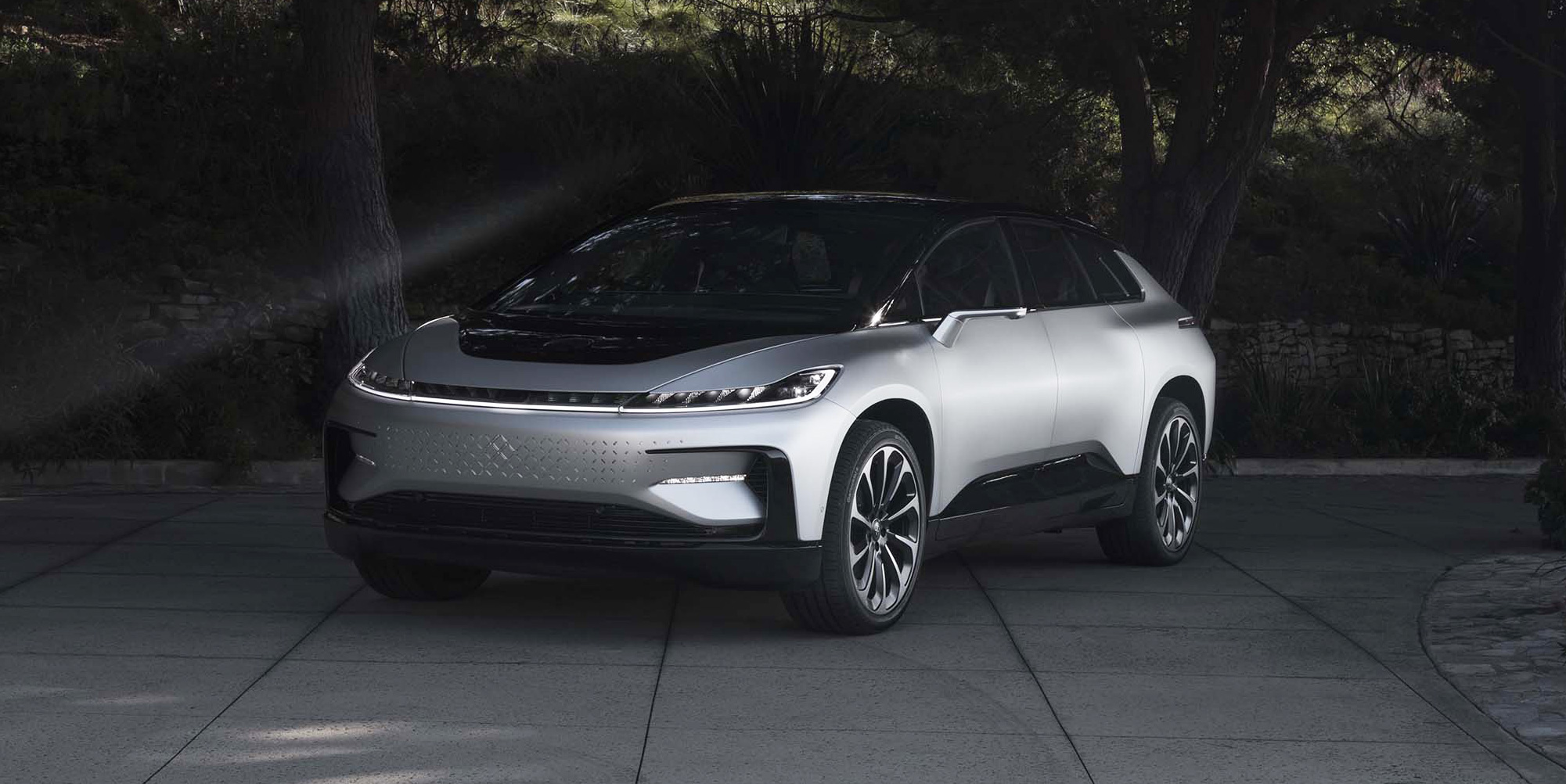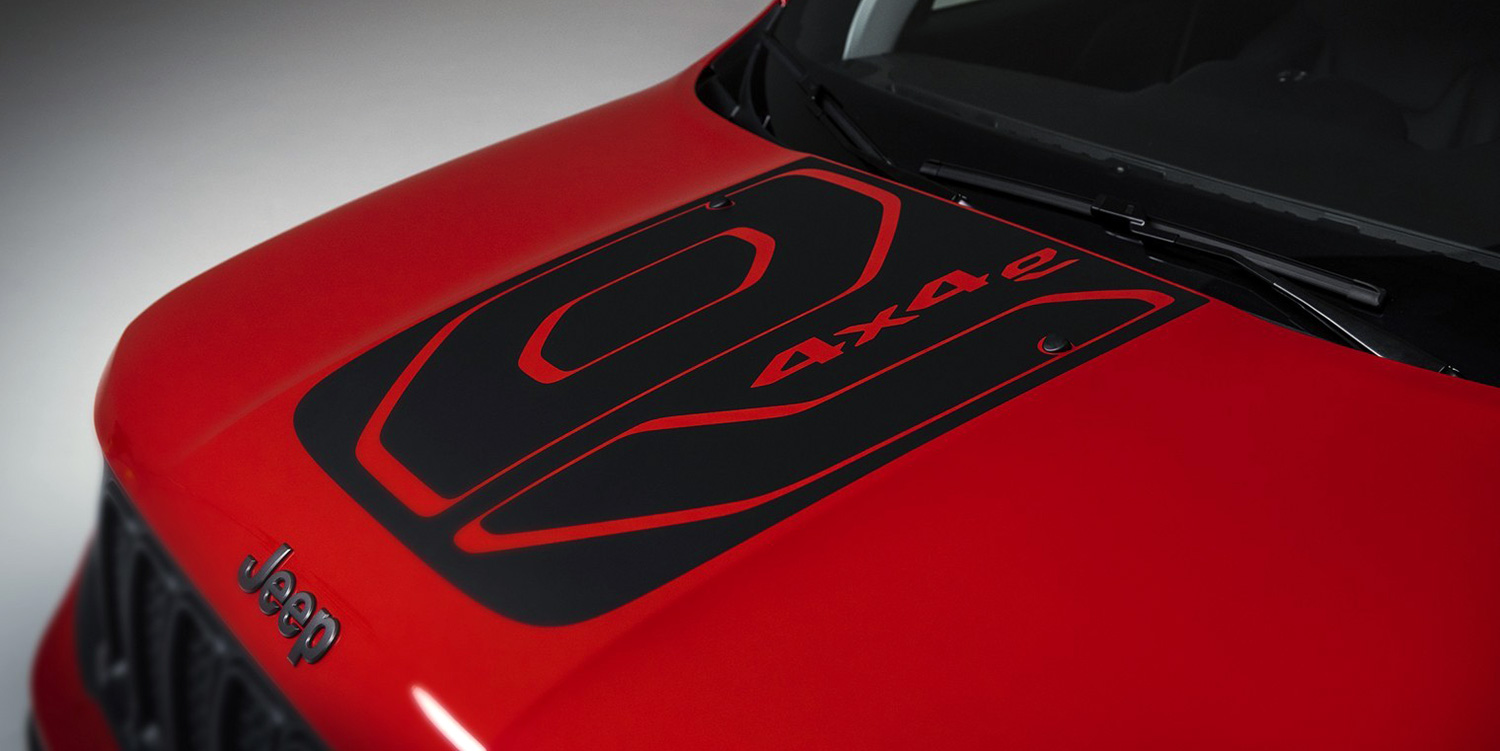Fiat-Chrysler (FCA) is in discussions about using EV technology from Faraday Future and Seres (formerly SF Motors), according to a report last week by The Verge. Current and former FCA employees said that Faraday Future retrofitted FCA vehicles with its electric powertrain and started road testing. That effort follows months of reported meetings between FCA and Faraday Future. With an FCA-Peugeot merger in the works, are we seeing signs of a new EV consolidated effort?
Maybe that’s taking things too far. But let’s connect a few dots.
First, there’s FCA, which is woefully behind in the EV race. It currently only offers the Chrysler Pacifica Plug-in Hybrid. However, in February 2019, the company announced a $4.5 billion investment in five of its existing Michigan factories. Can you say “Jeep EV?”
Well, FCA kinda sorta did – two years ago when it promised a plug-in hybrid Jeep Wrangler by 2020. It was spotted in testing early last month.
If Ford used its venerable Mustang brand as the halo for its EV efforts, maybe Jeep can follow suit with a real EV badged with its prized off-road lifestyle brand.
Meanwhile, in July, FCA invested nearly $800 million in a new assembly line to produce 80,000 electric Fiat 500e units annually. With the crossover craze in full effect, the Fiat 500, including the electric version, is no longer in the US market. But the EV play in Europe will likely include small battery-powered cars like the Fiat 500e and Honda e.
If FCA needs an infusion of first-rate EV technology, perhaps Faraday Future could provide it. The troubled Chinese EV company is led by Carsten Breitfeld, who was the force behind the BMW i8 plug-in hybrid supercar (and was CEO of BYTON for three years, leaving in April 2019).


Last month at the LA Auto Show, we reported that Breitfeld talked up Faraday’s technology:
The IP developed by Faraday is the most advanced and best electric power train in the whole industry. I’m not only talking about startup companies here. You can compare it to Audi to even BMW to Mercedes and Porsche. The Taycan is just coming out. I’m talking about power density, power range battery technology, and the most advanced technology which is available.
There’s been great talent at Faraday, including Pete Savagian, the engineer behind GM’s EV1. In response to our story from LA, Savagian commented on LinkedIn:
“I remember bragging about the FF ‘world’s best powertrain.’ In January of 17!”
In other words, that powertrain is a trapped asset held by a company that doesn’t seem capable of going into production.
Of course, until a deal is announced, Faraday will continue to say that it’s focusing on the production of the FF91 sedan. The specs of the FF91 also defy belief: three motors, 1,050 horsepower, 0-60 in 2.39 seconds, and a 130-kilowatt-hour battery pack.
And then, there’s Seres, which also put its EV powertrain into a couple of FCA vehicles, according to The Verge. Those discussions with FCA don’t seem as far along. The company is still in selling mode, signing a deal with Chinese automaker BYD to develop power electronics. Again, it’s technology looking for a place to go, especially after the company laid about one-third of its Silicon Valley staff in July. The employees most affected worked on marketing, not tech.
Wanted: An auto exec with vision and courage
Now, enter Carlos Tavares, the prospective CEO of the merged FCA-PSA alliance – which would become the fourth-largest automaker in the world.
Last month, admittedly with some hyperbole, I said that Tavares could turn the FCA-PSA group into a serious player in the EV space. David Cole, chairman emeritus of the Center for Automotive Research, last month said this about Tavares:
Like most successful CEOs, Carlos Tavares is not afraid to take risks – intelligent risks. [Tavares operates] more like a Silicon Valley entrepreneur.
In 2017, Tavares led the acquisition of the troubled Opel and Vauxhall brands from General Motors.
Tavares has more recently been keeping his cards close to his vest – expressing concerns about EV profitability. But two years ago, he told Bloomberg:
We understand that [electric vehicles] are a significant disruption. We feel very comfortable about this because we have been preparing for this since 2014. We are heavily invested in these two technologies, pure electric vehicles on one side and plug-in hybrids from the other side.
We expect that by 2020 that 50 percent of our models will be electrified. And by 2023, 80% of our models will be electrified.

You see that “e” after the “4×4” on the Jeep Renegade?
Electrek’s Take
A collaboration between FCA (and maybe PSA) with two fledgling Chinese EV makers could be good news. These entities could help each other solve their problems.
Certainly, FCA needs to deliver on its promise to put EVs into showrooms. How much longer can it wait? If the company can’t make a move on its own, perhaps a start-up or two can help them.
And any confidence in Faraday Future to become a volume EV maker has been stretched beyond its limit. We could watch them flounder for years or see their tech get utilized in volume production.
Tavares has the skills to make a union, even if it’s a marriage of convenience. Whatever it takes to put more EVs on the road.
FTC: We use income earning auto affiliate links. More.
Subscribe to Electrek on YouTube for exclusive videos and subscribe to the podcast.